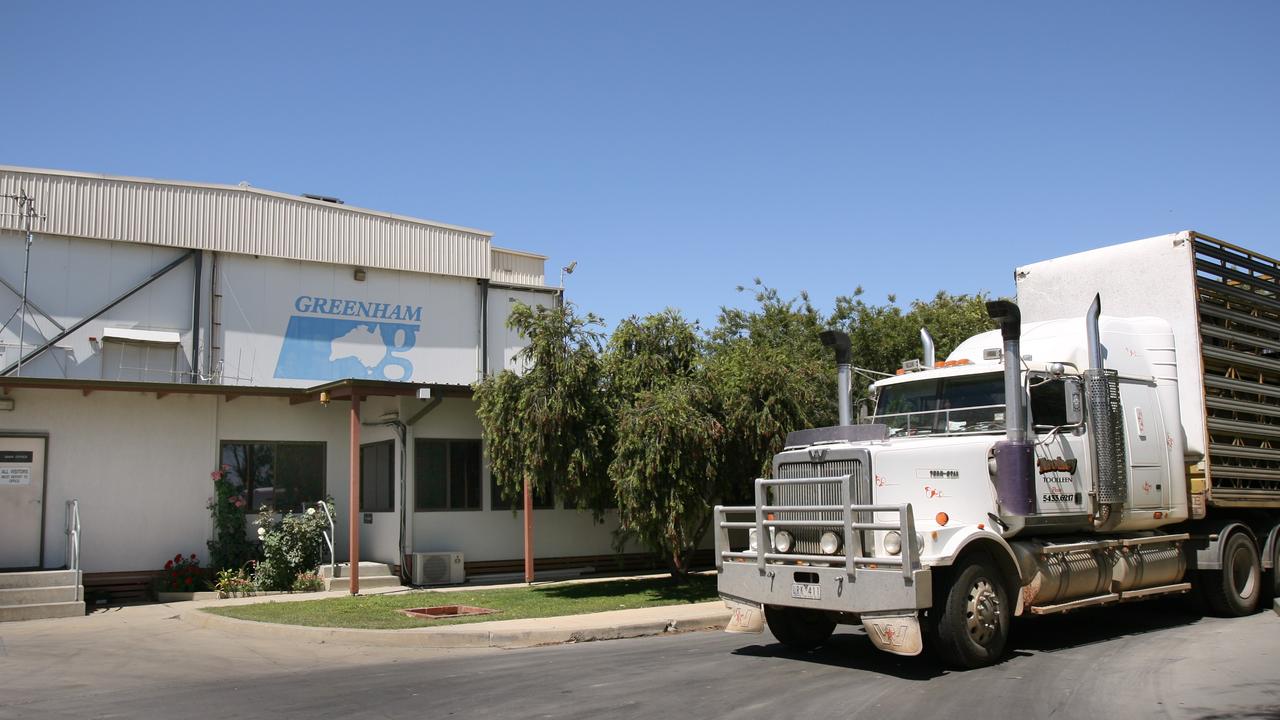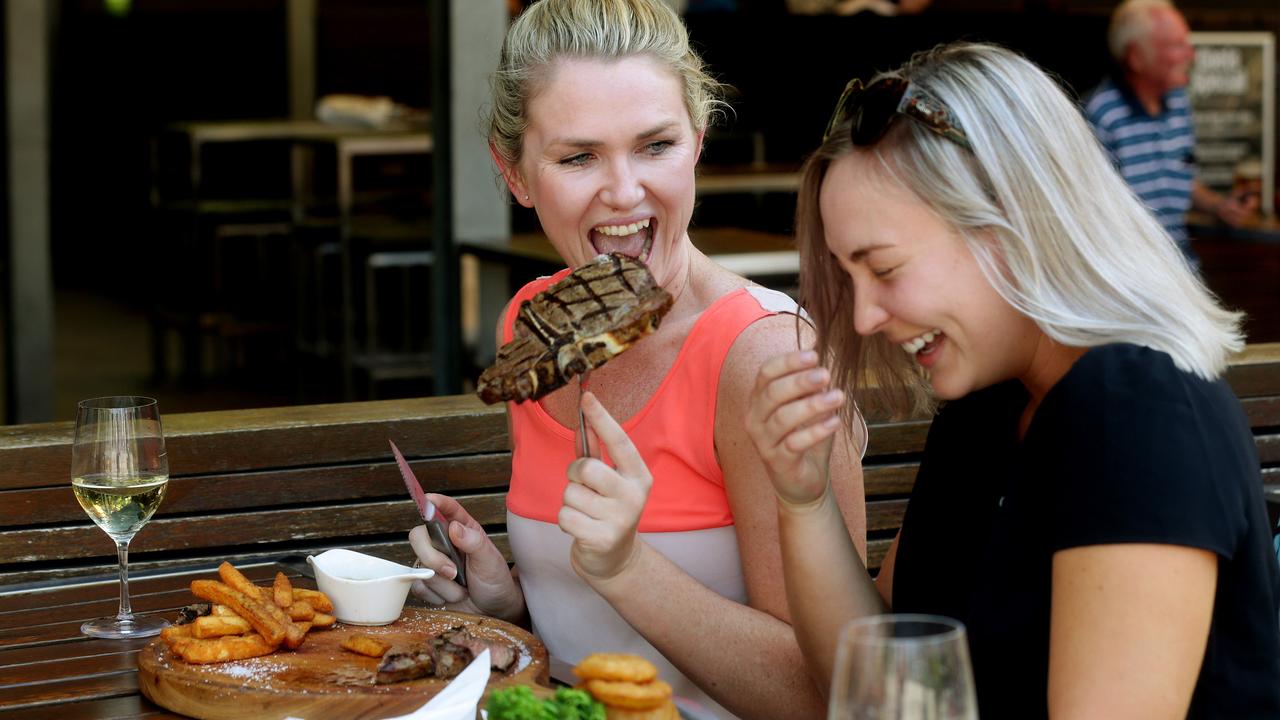Farmers legal battle over claims of deadly stockfeed from Ridley Corporation
A Gippsland farming family have taken legal action against Australia’s largest stockfeed company, alleging they were sold pellets that killed their cows. Graphic warning.
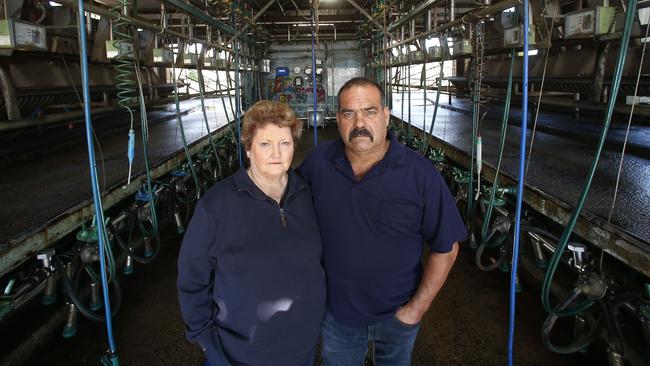
EXCLUSIVE: A GIPPSLAND dairy farming family is going up against Australia’s largest stockfeed company in a legal dispute over feed pellets the farmers claim killed 10 per cent of their herd and left 165 cows gravely ill.
And the case has exposed serious concerns about governments’ role in monitoring stock feed manufacturers.
The Weekly Times can reveal Vic and Debbie Guastella from Hallora have commenced legal action against stockfeed manufacturer Ridley Corporation, and supplier Weston Animal Nutrition, over a load of feed they allege contained 8330mg/kg of zinc – more than eight times the maximum amount deemed safe and about 140 times more than the estimated dietary requirement.
“We didn’t order any zinc. We didn’t even want any in there,” Mr Guastella told The Weekly Times.
“I have been doing this even before I left school. And those cows that died … I will never ever forget it.”
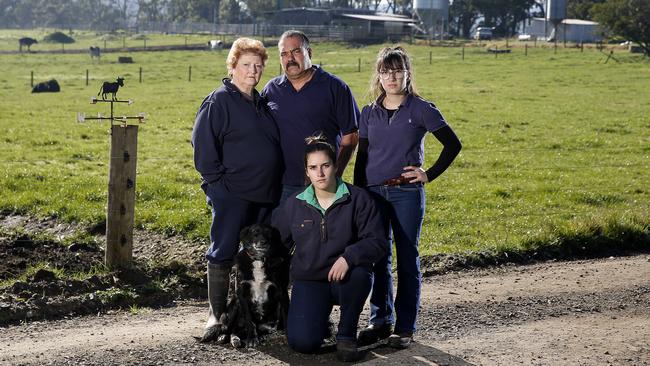
The Weekly Times is aware of at least one other Victorian dairy farmer who claims their herd became ill after consuming feed manufactured by Ridley.
Ridley, a publicly listed company, only recently settled a legal dispute in February with one of Australia’s biggest poultry producers, Baiada, over stockfeed manufactured at Ridley’s Wasleys mill in South Australia between about 2014 and 2017.
Ridley agreed to pay Baiada $1.935 million in an out-of-court settlement, however details behind the dispute are unknown to The Weekly Times.
The Weekly Times can reveal Australia has no national animal feed standard and both state and federal governments were confused about where auditing responsibilities lay.
The Weekly Times’ questions about who audits Victorian manufacturers was passed between Agriculture Victoria, Australian Pesticides and Veterinary Medicines Authority and SafeMeat for weeks.
Only when pressed, an Agriculture Victoria spokeswoman revealed yesterday it has some auditing responsibilities.
Victoria currently has at least 52 sites that manufacture stockfeed.
The industry’s peak representative body, the Stock Feed Manufacturers’ Council of Australia, which is funded by manufacturers, runs its own quality assurance program – FeedSafe – which is backed by state governments and includes third party auditing.
Currently, all of Ridley’s mills, including its Maffra site, which manufactured the Guastella’s pellets in March last year, have FeedSafe accreditation.
SFMCA executive officer Duncan Rowland said FeedSafe accredited sites are audited annually, but he would not specify when Ridley’s Maffra mill was last audited and would not say if SFMCA had investigated the Guastella’s allegations.
The Guastellas claim the zinc contamination affected their entire 185 Friesian herd, with 20 cows dying and the remaining 165 unable to produce milk.
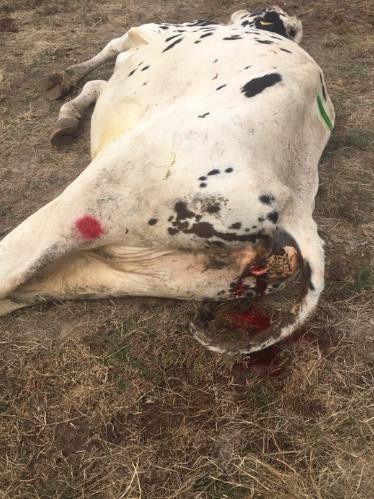
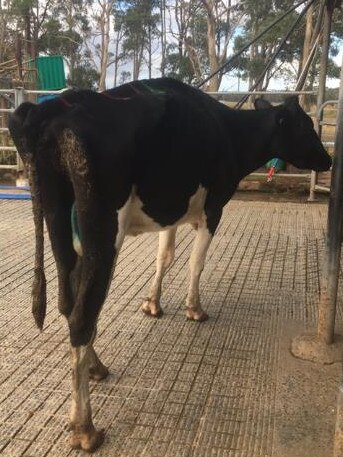
Mr Guastella said the contamination was so detrimental to his herd his family nearly lost the farm they have called home for the past 17 years, and all they want is to be compensated for their losses.
“We went from sending 4800 litres of milk every second day to 900,” Mr Guastella said.
“Eventually we couldn’t milk and had no income for four months.”
Documents seen by The Weekly Times show:
AN independent feed test conducted by Agrifood Technology found the pellets contained 8330 mg/kg dry matter of zinc.
BLOOD tests conducted on three of the Guastella’s cows found zinc levels were 126.2, 187.2 and 411.7 umol/L – levels deemed safe are 8-23 umol/L.
AN autopsy conducted on one of the Guastella’s cows found “marked elevation of liver zinc at a level indicative of zinc toxicity”.
While unable to comment specifically on the case, Melbourne University Veterinary School professor Peter Mansell said feeding zinc to dairy cattle at 8000mg/kg is “well above what would be considered to be a safe level” and that severely affected animals could die.
“The estimated dietary requirement of zinc for dairy cattle is around 30-60mg/kg of the diet,” Dr Mansell said.
“The recommended maximum level for zinc in the diet of dairy cattle is up to 1000mg/kg, although levels higher than this have been given to cattle in an attempt to prevent facial eczema (a disease of the liver and skin) without signs of toxicity.”
The Guastellas say it took about $20,000 in tests and bills to identify the zinc contamination, with vets and Victoria’s agriculture department spending weeks trying to determine why the family’s cows were sick and dying.
“All that time I was blaming myself. I thought it was something I had done wrong,” Mr Guastella said.
A TALE OF TRAGEDY: THE GUASTELLA’S STORY
The couple want to see Ridley’s Maffra mill shut down and a full investigation conducted by Victoria’s agriculture department with the mill’s FeedSafe accreditation stripped until independent auditors can deem their practices safe.
“It’s not like it was only double the amount. How can they make a mistake like that? The product we ordered shouldn’t have had any zinc at all,” Mrs Guastella said.
“We contacted the Stock Feed Manufacturers’ Council of Australia in June last year to report the matter and were told they would do a parallel investigation with ours to determine what happened. We have contacted them many times since that conversation and have never heard back”.
Victorian Farmers Federation president David Jochinke said farmers needed to be protected and if the current system wasn’t working, there needed to be a review of the industry.
“Something needs to happen on the back of this,” Mr Jochinke said.
“Stockfeed is an absolutely critical service people rely on daily for the nutrition of animals so they are healthy and productive.”
The Weekly Times understands a draft national stockfeed standard is currently in development by government departments.
EDITORIAL: FED UP WITH AUDIT CONFUSION
Mr Rowland said FeedSafe was founded in 2003 to deal with issues such as contaminants. About 164 stock feed sites have the accreditation in Australia.
He said FeedSafe manufacturers were not required to test batches of feed before sale but needed to retain a sample for testing, and that farmers only received samples if they requested one.
“There was definitely a gap in accreditation programs – so (we) decided to put a minimum standard in place for industry,” he said.
Agriculture Victoria told The Weekly Times yesterday that it undertakes investigations where unacceptable residues are detected in livestock products following testing conducted by the National Residue Survey.
Weston Animal Nutrition, a publicly listed stock feed company owned by the consumer product giant George Weston Foods, a subsidiary of Associated British Foods, who the Guastellas purchased the feed through, has filed a counterclaim against Ridley in the County Court of Victoria.
Ridley did not respond to questions from The Weekly Times.
However, after the article appeared in The Weekly Times, the company provided a statement which said, “Ridley is unable to comment specifically on the detail of the claims made by the Guastella family. While we acknowledge this is a difficult time for the family, the situation is a complex one, and we hope it can be resolved at the formal mediation scheduled to take place in the coming month.”
Weston Animal Nutrition said “as this is a legal matter currently moving through a mediation process, we are unable to comment”.
In court documents, Ridley and Weston Animal Nutrition both deny the feed was contaminated with more than 8000mg/kg of zinc.
MORE THE WEEKLY TIMES INVESTIGATIONS
AG OFFICIAL STOOD DOWN OVER ACTIVIST WEBSITES

